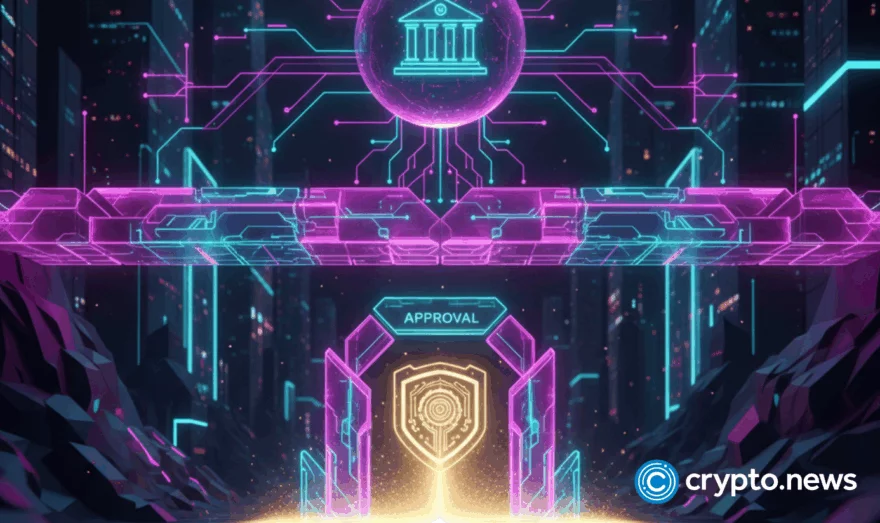RWA heralds the next wave of blockchain innovation in tradfi | Opinion

Disclosure: The views and opinions expressed here belong solely to the author and do not represent the views and opinions of crypto.news’ editorial.
In the future, all tradable assets will be tokenized. If this sounds like too bold a prediction, you should carefully consider the major funds from traditional finance (tradfi) that are adding momentum to the ascendancy of real-world asset (RWA) tokenization.
Larry Fink, chief executive officer at BlackRock, the world’s biggest asset manager, believes that the tokenization of securities will herald the “next generation” for tradfi markets. Bernstein Private Wealth Management forecasts that tokenization could amount to an overall market size of as much as $5 trillion by 2028, led by the introduction of central bank digital currencies (CBDC), stablecoins, private market funds, securities, and real estate.
Earlier this year, BlackRock launched its first tokenized fund, the BlackRock USD Institutional Digital Liquidity Fund (BUIDL). BUIDL, which was launched on Ethereum, enables investors to obtain yields in US dollars through a subscription to the fund through Securitize Markets. BNY Mellon enables interoperability for the BUIDL fund between digital token and tradfi markets. The initial ecosystem participants in BUIDL include Anchorage Digital Bank, BitGo, Coinbase, and Fireblocks, among other market participants and infrastructure providers in the digital token space.
According to data from RWA.xyz., BUIDL is now the largest tokenized treasury fund and has surpassed the $500 million mark in market value. RWA.xyz highlights an increasing trend in using tokenized treasuries as collateral in various financial ecosystems, signifying that tokenized treasuries are finding practical applications.
The overall tokenized treasury market has also witnessed impressive growth, with its total market capitalization surging from $572.40 million to $1.79 billion, marking a 212.72% year-on-year increase. According to data from CoinGecko, there has been an 11.7% increase in the total market capitalization of RWA-related assets over the past 24 hours.
BlackRock’s launch of BUIDL follows last year’s launch of the Franklin OnChain US Government Money Fund (FOBXX) by Franklin Templeton, which was the first tokenized money market fund, deployed on the Stellar blockchain. The fund invests at least 99.5 percent of its total assets in US government securities, cash, and repurchase agreements collateralized fully by government securities or cash.
Meanwhile, Edinburgh-based Abrdn launched a tokenized money market fund in 2023, the first of its kind in the United Kingdom, the Aberdeen Standard Liquidity Fund (Lux)—Sterling Fund. The UK Treasury has already established a Technology Working Group to look at how blockchain technology can be implemented in the asset management space. The Technology Working Group has published a blueprint for regulated funds in the UK to put the assets that they hold onto the blockchain. These guidelines will enable asset managers authorized by the UK’s Financial Conduct Authority (FCA) to tokenize funds, providing the fund’s managers continue to provide valuations and settlement through the same processes and timeframes.
Michelle Scrimgeour, chief executive at Legal & General Investment Management and chair of the working group, described the publication of the report by the Technology Working Group as a milestone in the implementation of tokenization within the fund industry of the UK. “Fund tokenization has great potential to revolutionize how our industry operates by enabling greater efficiency and liquidity, enhanced risk management, and the creation of more bespoke portfolios,” he said in an interview.
In a further innovation, Jiritsu, a layer one blockchain RWA platform backed by gumi Cryptos Capital, Republic Capital, Polymorphic, Tokentus, and Susquehanna, has integrated with BlackRock’s ecosystem to enhance RWA verification. This integration aims to revolutionize how RWAs are managed and verified. Jiritsu’s technology extends the concept of proof of reserves to include the precise value backing Bitcoin Exchange Traded Funds (ETFs) and any RWA.
The decision of BlackRock and Franklin Templeton to form joint ventures with established participants in the digital token space demonstrates a willingness in tradfi to leverage the expertise of web3 to deliver safe and scalable solutions for RWA.
Assets that reside on balance sheets in tradfi markets that can be tokenized include financial assets, such as bonds and equities, tangible assets—such as land, real estate, and commodities—and intangible assets, such as Intellectual Property (IP).
As financial assets and many intangible assets are digital in nature, the blockchain is ideally suited to represent and secure ownership of the underlying digital asset. Furthermore, the integration of onchain transparency will empower decentralized finance (defi) solutions, offering synthetic assets, options, and granular insights into asset flows.
In a report titled “Tokenization: A digital-asset déjà vu,” McKinsey & Co. outlined how tokenization can enhance levels of automation in tadfi markets as a result of the capacity to embed code in a digital token with the programmability of digital tokens, providing the ability to engage with smart contracts.
Proponents of RWA argue that it has the potential to democratize historically less accessible investment opportunities with the provision of increased liquidity, proof of ownership, and transparency. Furthermore, tokenization can enable digital and non-digital assets that currently reside on the balance sheet of financial institutions to be tradeable and liquid 24 hours a day, seven days a week.
The drivers for tokenization in tradfi are manyfold. Tokenization provides trading opportunities for corporations and high-net-worth individuals who will benefit from more liquidity for their assets. Meanwhile, institutional investors benefit as capital providers and will be able to select from vastly more choices when investing in financial assets. Furthermore, the promise of smart financial contracts, which include the payment obligations and cash flows of all parties to the financial contract, will result in efficient price discovery and post-trade automation. This will allow the construction and re-balancing of risk-return adjusted portfolios at currently unachievable cost levels.
As this year’s launch of a flurry of Bitcoin ETFs proves, there is huge pent-up demand in the tradfi space for exposure to blockchain-based applications. Tokenized assets appear poised to bring increased transparency, liquidity, and accessibility to tradfi markets, facilitating fractional ownership and liquidity that may democratize access to high-quality investment assets. RWA could just be a catalyst for the next wave of innovation as the blockchain proves to be a highly resilient—and compatible—technology for the evolution of tradfi markets.
















